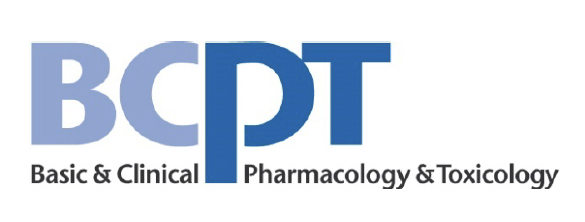The Nordic Association for the publication of “Basic & Clinical Pharmacology & Toxicology” has awarded the BCPT Nordic Prize in Basic and Clinical Pharmacology and Toxicology for 2018 to Professor Magnus Ingelman-Sundberg, Karolinska Institute (KI), Stockholm, Sweden
Magnus Ingelman-Sundberg has made a fundamental contribution to personalized medicine and individualized drug treatment. A significant part of this work has been produced in collaboration with clinical pharmacology, both in Sweden and globally. His scientific skills and genuine curiosity for understanding mechanisms behind inter-individual variability in drug response has generated many successful translational research projects, bridging basic and clinical research and leading to breakthrough findings. All through his research career, Ingelman-Sundberg has combined an open but critical mindset with cutting edge methodology.
Major scientific achievements
Ingelman-Sundberg received his PhD in 1977 on the enzymatic characterization of hepatic steroid conjugation reactions. In the following years, he worked on the original identification and molecular characterization of ethanolinducible cytochrome P450 (CYP)2E1, which is of key toxicological importance in alcoholrelated liver disease. In the mid-1980s, he initiated an important cross-disciplinary collaboration at the KI together with Professor Folke Sjöqvist and the Division of Clinical Pharmacology at Huddinge University Hospital. The purpose was to understand the molecular basis of polymorphic drug oxidation and its importance for individual differences in drug response. The collaboration was supported by a long-term joint grant from the Swedish Research Council to use molecular biology methods to explore and understand the basic mechanisms of disease, diagnosis and therapy. The collaboration has been successful with several breakthrough discoveries including ultra-rapid drug metabolism via CYP2D6 and inter-ethnic differences in the distribution of CYP allele variants and the corresponding functional impact on drug metabolism. This partnership has included joint supervision and training of PhD students, postdocs and research staff and transfer of clinical and experimental research methods between laboratories and research groups within and outside the KI.
Recently, Ingelman-Sundberg has applied novel approaches to study epigenetic mechanisms behind variability in drug metabolism and used bioinformatics methodology and genome sequence data to conclude that a major part of inter-individual variability in CYP activity and drug clearance is related to very rare or even patient-unique genetic variants. These findings would require new predictive in silico tools and phenotyping methodology for a functional understanding. To complete the circle back to original toxicological achievements, Ingelman-Sundberg has spent substantial time and collaborative efforts on the important issue of drug-induced hepatotoxicity. In this work, a novel in vitro bioreactor assay was recently developed and characterized, based on human hepatocytes that grow in spheroids and keep a high level of differentiation ex vivo. This system might be very useful also to understand the pathophysiology of chronic liver disease.
Ingelman-Sundberg’s short CV
Ingelman-Sundberg is a Swedish citizen born in 1951 in Danderyd. He received his Master’s Degree from the Royal lnstitute of Technology in Stockholm in 1975 but at the time he had already started to work at the KI where he received his PhD in 1977. This was soon followed by an associate professor position in physiological chemistry. During these early years, and while he established his own research group, he also took a Bachelor’s Degree in medicine at the KI in 1978. After several years as acting professor at the Medical Biochemistry and Biophysics Department, he was appointed full professor of molecular toxicology at the KI in 1996. Presently, he is in charge of the Section of Pharmacogenetics that belongs to the Department of Physiology and Pharmacology at the Karolinska Institute, where he is also the vice-chairman.
He has published more than 440 original scientific papers, which have been cited nearly 31,000 times, and he has a Hirsch-Index of 90 (Scopus, September 2018). Thus, Ingelman-Sundberg is one of the world’s most cited researchers in pharmacology (http://isihighlycited.com) and Thomson Reuters has classified him as one of the world’s most influential scientific minds. He has been the main supervisor of 31 individual PhD students as well as 30 postdocs at the KI. Ingelman-Sundberg has or has had a long list of positions of trust including chairs of the KI Recruitment Committee and the KI Research Training Programme for developing countries and the Programme Committee of the MD curriculum at KI. He is an active a member of the Nobel Assembly at KI. Ingelman-Sundberg has received many scientific awards including The Svedberg Prize, EUROTOX1996, The Bengt Danielsson Prize and the Swedish Academy of Pharmaceutical Sciences 2008 Award. Ingelman-Sundberg is in the Editorial Board of many influential journals in the field, such as Trends in Pharmacological Sciences, Pharmacogenetics and Genomics, Pharmacogenomics, Drug Metabolism Review, Drug Metabolism and Disposition, Humans Genomics.
Conclusion
Magnus Ingelman-Sundberg is awarded the 2018 BCPT Nordic Prize in Basic and Clinical Pharmacology and Toxicology because he is internationally recognized as a leading scientist in pharmacogenetics and personalized medicine. His achievements in biochemistry, toxicology, pharmacogenetics and clinical pharmacology are outstanding. Ingelman-Sundberg has been instrumental in supporting clinical pharmacology worldwide by spreading scientific and technological competence required for a better understanding of inter-individual and inter-ethnic difference in drug response.
Kim Brøsen
Editor-in-Chief
BCPT
14 September 2018

